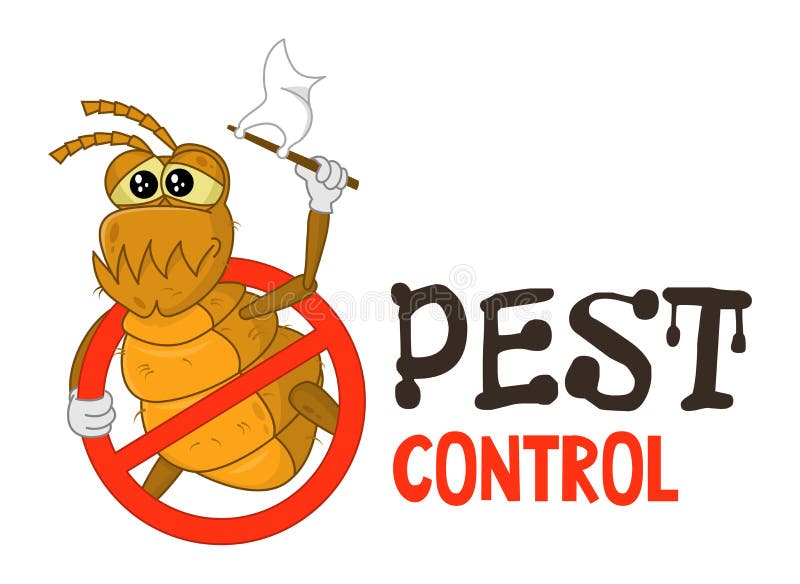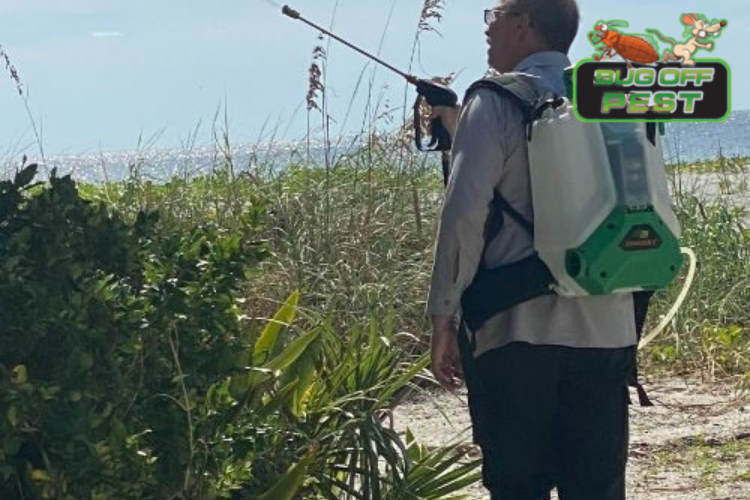Reliable Termite Treatment Port Charlotte to Protect Your House
Reveal the Relevance of Pest Control in Preserving a Healthy And Balanced Setting and Treatment Strategies

The Function of Pests in Ecosystems
Parasites, often checked out exclusively as hassles, play a diverse function in ecosystems that is vital for preserving eco-friendly balance. They add substantially to different eco-friendly processes, including pollination, nutrient cycling, and insect control. For instance, lots of insect species, such as butterflies and bees, are crucial pollinators for a broad range of plants, which subsequently supports biodiversity and food manufacturing.
In addition, pests work as victim for many predators, creating a critical web link in food webs. This connection guarantees the survival of different species and aids control populaces within communities (Termite treatment Port Charlotte). Furthermore, decomposer insects, such as certain beetles and fungi, contribute in breaking down natural issue, therefore improving soil and helping with vitamins and mineral recycling.
Alternatively, while bugs can be beneficial, their overpopulation or intrusion right into non-native settings may interfere with these environmental functions. This intricacy underscores the value of understanding insect characteristics, as reliable parasite management approaches have to consider both their eco-friendly duties and prospective effect on human activities. Balancing pest presence while minimizing injury is crucial for maintaining the honesty of environments and making sure farming efficiency.
Health Risks Connected With Insects
The existence of parasites in various atmospheres prolongs past their environmental duties, as they additionally pose considerable health risks to pets and people. Numerous pests, including insects, parasites, and rats, are service providers of conditions that can have significant health and wellness ramifications. For circumstances, rodents are understood to transfer hantavirus and leptospirosis, both of which can bring about extreme respiratory and kidney issues, specifically.
Insects such as mosquitoes and ticks are well known for spreading out vector-borne illness like malaria, dengue high temperature, and Lyme condition. These illnesses can cause high morbidity and mortality rates, specifically in vulnerable populations. Additionally, bugs like vermins and cockroaches can aggravate allergies and bronchial asthma, adding to respiratory issues in people, particularly those with pre-existing problems.
Moreover, the existence of insects can cause emotional stress and discomfort, influencing total wellness. Contamination of food and surfaces by bug droppings and continues to be can result in foodborne ailments, highlighting the value of keeping sanitary conditions. Recognizing the health threats associated with parasites is important in recognizing the need of reliable pest monitoring approaches to guard animal and human health and wellness.

Advantages of Efficient Pest Control
Reliable insect control is necessary for preserving a healthy and risk-free setting, as it continually minimizes the countless dangers linked with insect invasions. Among the primary benefits of effective parasite administration is the decrease of carcinogen. Bugs such as rodents, roaches, and insects are vectors for conditions that can impact both people and animals. By controlling these populations, the chance of condition transmission is considerably decreased.
Furthermore, efficient parasite control safeguards residential property and structures from damage. Numerous parasites, like termites and carpenter ants, can trigger comprehensive structural damages that might need expensive repairs. By proactively managing these services, house owners and infestations can secure their financial investments.
One more significant advantage is the renovation of general top quality of life. A pest-free atmosphere adds to mental well-being and minimizes stress and anxiety connected with infestations. In addition, efficient pest control cultivates a safer environment for family pets and kids, ensuring that homes continue to be shelters devoid of dangerous chemicals and disease-causing microorganisms.
Common Parasite Control Methods

In the world of parasite management, numerous methods are utilized to deal with invasions successfully. These methods can be generally classified into three main techniques: social, mechanical, and chemical controls.
Social control involves modifying techniques to lower bug survival, establishment, and reproduction. This might consist of plant turning, proper hygiene, and habitat control, which jointly create a setting less for pest proliferation.
Mechanical control utilizes physical techniques to get rid of bugs (Termite treatment Port Charlotte). Techniques such as traps, barriers, and vacuum cleaners are frequently utilized to directly eliminate bugs from a location. This technique is especially reliable for taking care of rats and insects without using harmful chemicals
Chemical control involves the application of chemicals to handle parasites. These substances can be classified right into fungicides, insecticides, and herbicides, each targeting particular kinds of parasites. It is critical to make use of these chemicals sensibly, adhering to security guidelines and guidelines to decrease possible damage to non-target varieties and the environment.
Each parasite control method has its benefits and restrictions, and often, an integrated approach incorporating multiple methods generates the very best lead to preserving a pest-free setting.
Lasting Insect Monitoring Practices
Lasting insect administration practices incorporate a variety of approaches designed to minimize ecological effect while properly managing insect populaces. These techniques focus on making use of eco-friendly approaches over chemical pesticides, thereby lowering the danger of damage to non-target species, consisting of beneficial bugs, wild animals, and human beings.
Integrated Bug Management (IPM) is a foundation of lasting techniques, integrating biological, social, mechanical, and chemical strategies to take care of parasites. As an example, biological control entails additional reading introducing all-natural predators or bloodsuckers to suppress insect populaces. Cultural techniques, such as crop rotation and Extra resources polyculture, interrupt pest life process and enhance environment strength.
Mechanical techniques, such as traps or obstacles, can properly stop bug access without chemical treatment. In addition, maintaining healthy and balanced ecological communities through proper dirt management, plant health and wellness, and biodiversity can normally mitigate bug concerns.
Education and awareness are crucial components, encouraging neighborhoods and people to recognize pest risks early and apply safety nets. Termite treatment Port Charlotte. By promoting a holistic approach that balances bug control with environmental integrity, sustainable parasite administration techniques not only secure frameworks and plants yet likewise contribute to a healthier setting for future generations
Conclusion

Understanding the health and wellness threats linked click for more info with bugs is critical in recognizing the requirement of efficient bug administration methods to guard human and animal wellness.
Reliable parasite control is essential for preserving a risk-free and healthy environment, as it constantly alleviates the countless risks connected with pest invasions.Integrated Insect Management (IPM) is a cornerstone of sustainable methods, combining organic, social, mechanical, and chemical strategies to manage parasites. By recognizing the function of parasites, identifying involved wellness dangers, and using varied treatment methods, a sustainable method to pest administration can be attained. Integrated Insect Management (IPM) stresses a holistic technique that alleviates harm to useful organisms while efficiently regulating pest populations.